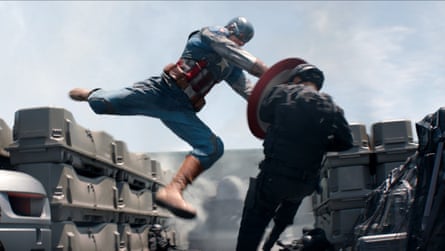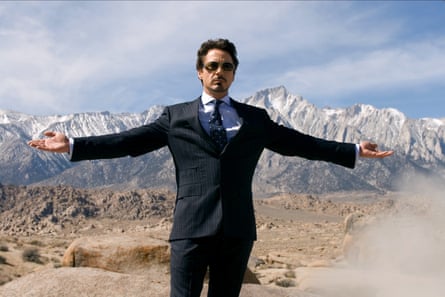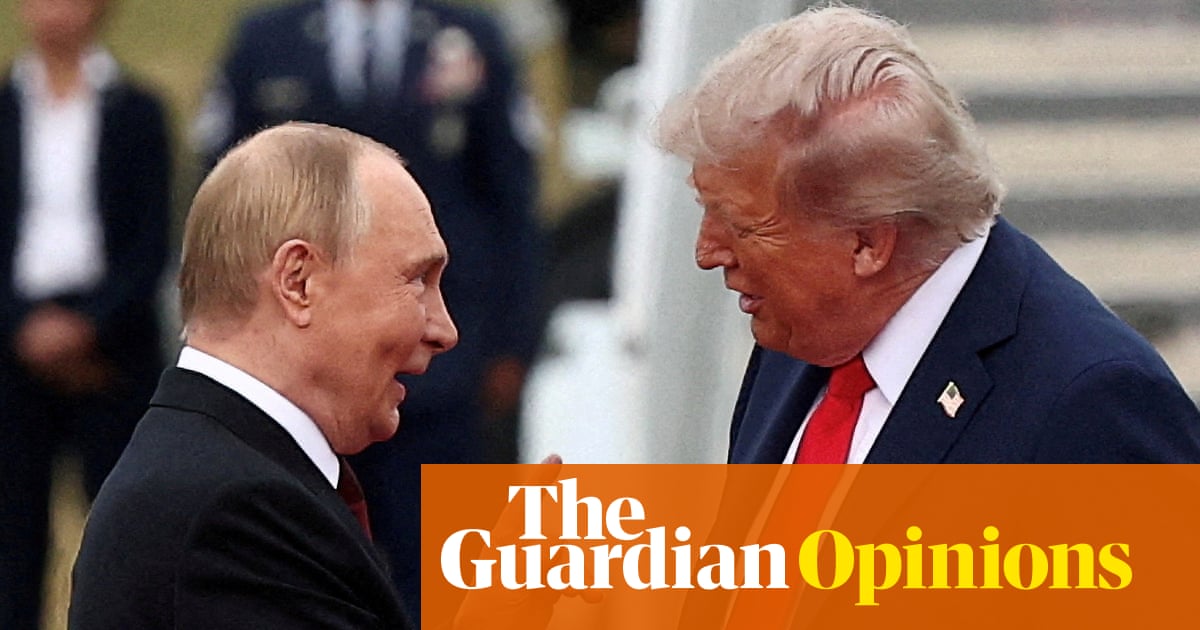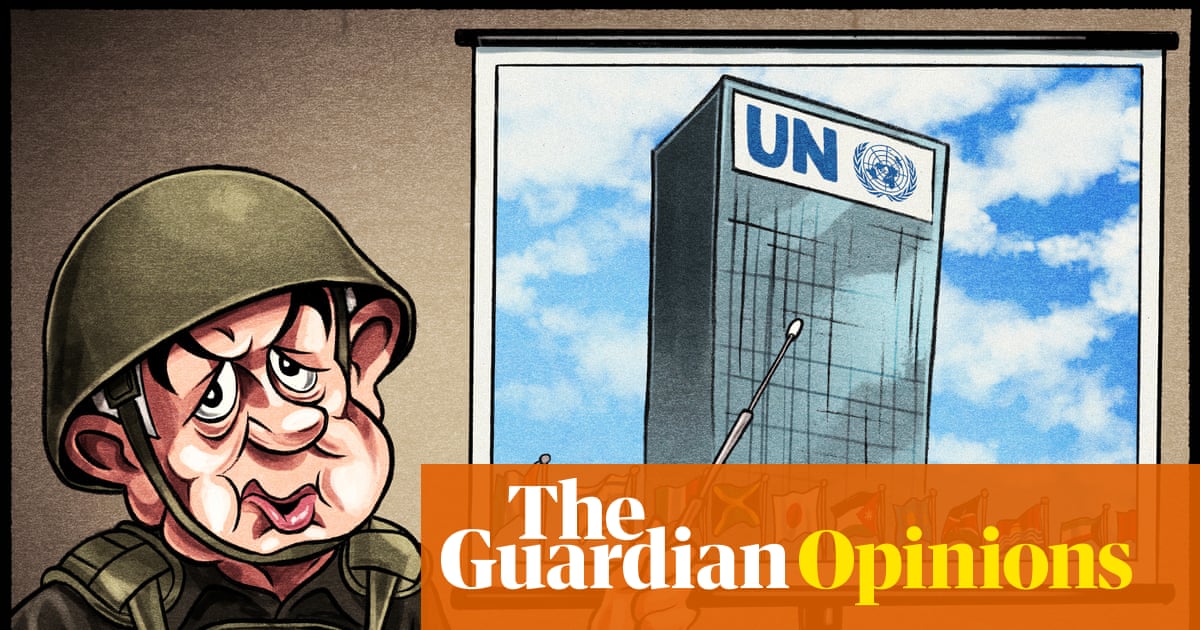Dean Cain, you may have read, is very upset with the new Superman. The erstwhile Man of Steel, who played the last son of Krypton on TV in Lois & Clark: The New Adventures of Superman from 1993 to 1997, thinks James Gunn has gone too far with his description of Kal-El as an “immigrant that came from other places and populated the country” in the new DC film.
Speaking to TMZ, Cain pondered: “How woke is Hollywood going to make this character? How much is Disney going to change their Snow White? Why are they going to change these characters [to] exist for the times?”
Here’s the thing (and you might think Cain had picked this up given he actually played the guy) Superman has actually been woke since 1938. Created by two Jewish teenagers from Cleveland, Jerry Siegel and Joe Shuster, he was a child of the Great Depression, standing up for the little guy, fighting Nazis (as well as corrupt politicians, crooked landlords and wartime saboteurs). In many ways he represented the ultimate immigrant fantasy: assimilated, adored, and just powerful enough to completely knock injustice into next week.
In fact, superheroes (and more recently superhero movies) have always been the genre equivalent of a protest sign in a wind tunnel: loud, colourful, occasionally hard to read, but very much trying to say something. Captain America was literally invented to punch Nazis – the first issue of Timely Comics’ Captain America Comics #1 famously featured him socking Hitler in the jaw – months before the US officially entered the second world war. If that’s not performative virtue signalling, I’m not sure what is.

In 1946 (on the radio), Superman took down a thinly veiled version of the Ku Klux Klan in a 16-part storyline titled “Clan of the Fiery Cross”. The show’s writers used real-life intel from anti-racist activist Stetson Kennedy, who had infiltrated the Klan and passed on details of its secret codes and rituals. It is widely cited as one of the earliest and most effective examples of mass media activism, and certainly a lot more politically brazen than anything Gunn is planning.
And yes, there might have been a brief period in the 1950s in which Cap seemed to be weirdly repositioned as Joseph McCarthy’s commie-bashing errand boy (in the comics). But that whole era was so awkwardly jingoistic that Marvel eventually retconned it entirely, blaming it all on an impostor.
As superheroes transitioned to the big screen from the late 1970s onwards, the original Superman movie emerged in 1978 amid the post-Watergate, all-American desire for a hero who didn’t lie, cheat, embezzle, wiretap, bomb Cambodia, or resign in disgrace with jowls full of self-pity and a suitcase full of un-shredded indictments.
By the early 00s, X-Men had turned its spandex into a metaphor delivery system, giving us a mutant civil rights allegory so on the nose it basically came out during the opening credits. Whether it was Magneto as militant separatist, Professor X as an integrationist who uses a wheelchair, or teenagers being grilled about their DNA in suburban living rooms, this was identity politics in Lycra, with just enough laser eyes to distract from the social realism. Nobody seemed to mind a bit that Mystique changed sex at will, Rogue needed gloves to avoid unsolicited intimacy, and the whole film played like a coming-out parable in leather – because for all its subtext, X-Men still delivered the spectacle fans came for.

And then of course there was the Marvel Cinematic Universe proper, kicking off with 2008’s Iron Man. Here’s a movie in which Robert Downey Jr’s Tony Stark basically has an epiphany that building shoulder-mounted death machines for unstable warlords might not be the most ethical retirement plan – and somehow this moment of conscience becomes the bedrock of the entire MCU. Woke strikes again!
after newsletter promotion
At which point we should probably acknowledge that this is exactly the sort of stuff Cain is complaining about. The nuance, the guilt, the faint whiff of accountability in a billion-dollar franchise. The absence of the sort of “all-American” values last seen in a deleted scene from Team America that was deemed too on-the-nose. And yet ultimately, if superheroes aren’t about subverting the powerful, sticking up for the underdogs, and punching moral cowardice squarely in the jaw, what exactly is the point?
This is not to say that there haven’t been intriguing rightwing superheroes over the decades, though it’s rare that any of these have really ended up looking like someone you’d trust with a moral compass. Take Watchmen’s Comedian, casually blasting Vietnamese villagers like a walking nightmare of national militarism cranked to 11 and handed a flame-thrower. Or Gunn’s own Peacemaker, a cautionary tale about what happens when you mix a very dim man with a blind devotion to “peace through strength” and a fondness for ends-justify-the-means patriotism. Then there’s The Boys’ Homelander: an authoritarian, populist psychopath in stars and stripes.
Of course what Cain et al would really like to see is a Superman who mirrors all of these leanings without any of the obviously bad stuff: the fascist overtones, the laser-eyed jingoism and the genocidal meltdowns. The only problem here is that such a character doesn’t exist, or at least, would be pretty boring to watch. Because once you strip out truth, justice, compassion, doubt, and any hint of moral complexity, what you’re left with isn’t a superhero: it’s a Maga-friendly screensaver with heat vision, great hair and absolutely no sense of irony.

.png) 2 months ago
27
2 months ago
27

















































